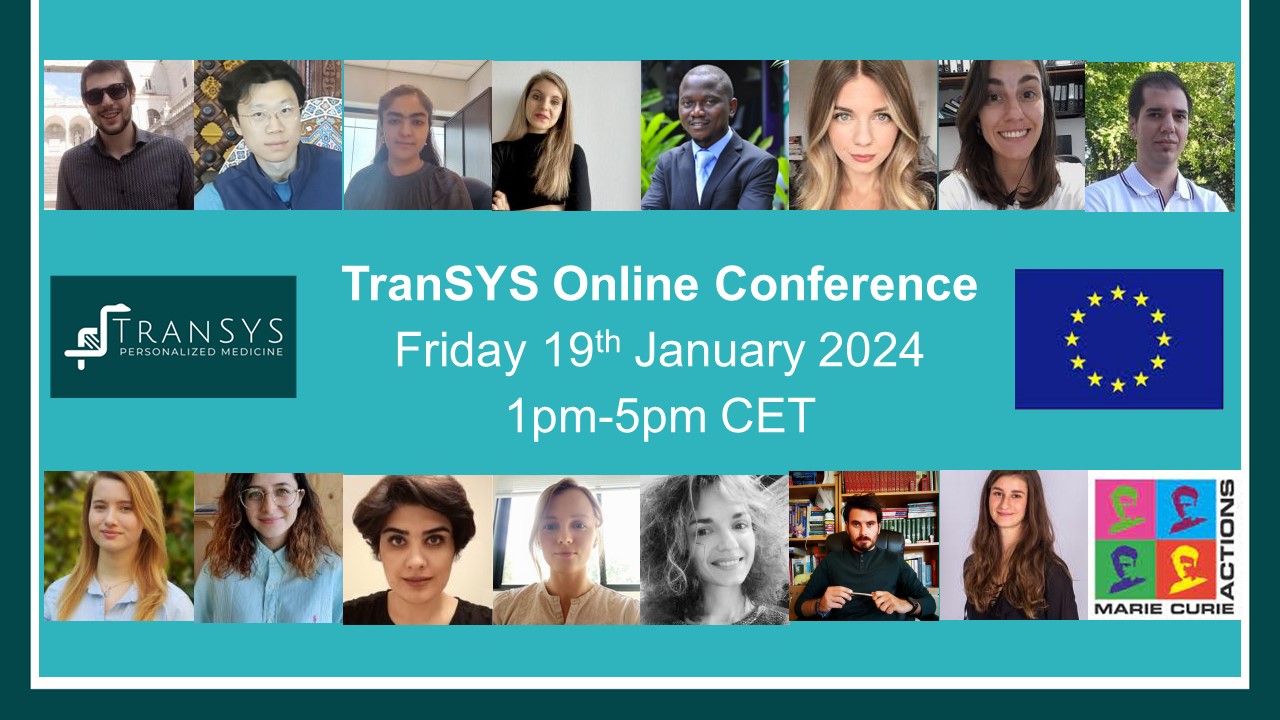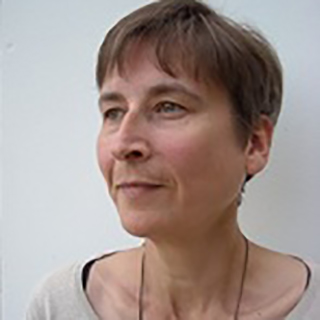
Our free online conference, organised by the TranSYS Early Stage researchers, will present the advances made by the training network in Precision Medicine across several disease areas. Registration is required (see link above). Each presentation will be followed by a Q & A session. Start times are in Brussels time.
Start
13.00

Prof Dr Dr Kristel van Steen
TranSYS Project coordinator KU Leuven
Introducing the TranSYS Innovative Training Network
13.15

Federico Melograna
Edge and modular significance assessment in individual-specific networks
“In this work, I focus on ISN a-la LIONESS; and I developed and evaluate different outlier detection methods to find outlier in unsupervised graphs. Incidentally, I also improve existing method to simulate Microbiome data”
13.45

Zuqi Li
A novel network-guided multi-view clustering workflow for dissecting genetic and facial heterogeneity
“My academic work is mainly about multi-view clustering with consideration of confounders. I develop methods for multi-view data integration and clustering and apply them on real-life datasets for novel biological insights”
14.15

Kariofyllis Karamperis
Deciphering the concept of Population Pharmacogenomics: Worldwide distribution of clinical actionable variants associated with drug toxicity
“My academic work is mainly focused on deciphering the concept of population pharmacogenomics. In this project, we explore the genetic differences among different populations related to drug toxicity and thus, to provide a worldwide spectrum and emerging risks in prescribed medications”
14.45

Lara Andreoli
Ethical issues in the clinical implementation of Polygenic Risk Scores (PRS). A systematic review
“My academic work focuses on the ethical and social implications of introducing Polygenic Risk Scores in clinical care for the prevention and treatment of common multifactorial diseases”
Break (15 minutes)
15.30

Catalina Berca
Strategies to improve targeted therapies in bladder cancer
“This project is focused on the improvement of a targeted therapy against bladder cancer. This has been conducted through the combined inhibition of the FGFR3 oncogene and a potentially new target for bladder cancer. The work has been performed using cell lines and also it will involve organoids for validation”
16.00

Katarina Mihajlovic
Multi-omics integration of scRNA-seq time series data predicts new intervention points for Parkinson’s disease
“My academic work focuses on developing a novel machine learning frameworks for analyzing SC time-dependent omics data. Particularly, the frameworks integrate and mine SC time-dependent omics and network data involving different data types, such as transcriptomics, proteomics and metabolomics. Biologically, the developed framework will allow us to identify novel disease-associated genes and emphasize the roles of different biological mechanisms that contribute to the pathogenesis of a disease. Furthermore, based on the identified genes, we can suggest novel drug-repurposing opportunities for disease treatment. To that end, we apply our methodology to the time-dependent scRNA-seq data of Parkinson’s disease and shed new light on this disease”
16.30

Maryna Korshevniuk
Interindividual differences in the regulatory wiring of cells and its relation to disease
“My academic work focuses on single-cell multiomics, eQTL mapping, and gene regulatory networks. I analyze blood data using large-scale data analysis to uncover molecular insights and disease mechanisms”

